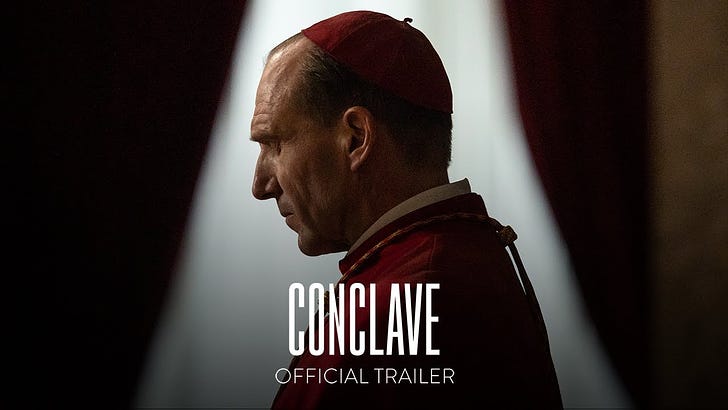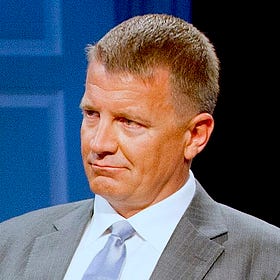
Good morning from… can you guess where? (Answer at the bottom!)
Could the Next Pope Be African? Hopes Rise, But Odds Remain Long

With Pope Francis’s passing, eyes across Africa are turning toward the Sistine Chapel ceiling, not just in mourning, but in hope. Could the next pontiff be African? Many Catholics on the continent believe it’s long overdue.
Here’s what’s bubbling beneath the incense smoke:
Why now? Africa is Catholicism’s fastest-growing frontier. The continent added 9 million Catholics just last year and now makes up around 20% of the global Catholic population. In a region where faith saturates daily life, the Church’s growth is spiritual and strategic.
Who’s in the running? Three African cardinals are being floated as contenders, according to Reuters:
Cardinal Peter Turkson (Ghana, 76) – Long respected in Vatican circles, though seen as an outsider.
Cardinal Fridolin Ambongo (DRC, 65) – The charismatic archbishop of Kinshasa.
Cardinal Ignace Bessi Dogbo (Ivory Coast, 63) – Considered quietly influential.
The Vatican reality check:
Insiders say the odds are slim. Many African cardinals haven’t faced the same level of public vetting as their Western counterparts, an issue in a Church still reeling from decades of scandals. And picking a pope has always been more divine mystery than predictable outcome, at least for us outsiders.
Meanwhile, the global curiosity over Vatican politics has turned cultural: viewership for the film Conclave – about the secretive process of picking a pope – has spiked over 200% since Francis’s death.
The faithful (and the Netflix crowd) are watching and, incidentally, here’s what we shared about the movie only two months ago, in which we focused on the treatment of the singular Black African cardinal.
The Convoy — A Survivor Relives Rwanda’s Genocide (and Reclaims Her Story)
Think of The Convoy as that memoir that snaps you to attention in a single line. Written by Beata Umubyeyi Mairesse, it’s a first-person account of surviving one of the 20th century’s most notorious atrocities: the 1994 Rwandan genocide. But more than just a harrowing tale of near-misses and miraculous escapes, Mairesse also tackles big questions about journalistic voyeurism, survivor identity, and who truly “owns” a story of collective trauma.
Here’s the short version:
Historical Horror, Told Human-Scale: Mairesse vividly describes her teenage self hiding from relentless génocidaires, eventually fleeing Rwanda alongside her mother under a rug on a humanitarian lorry. Despite the unimaginable terror she lived through, her narrative never veers into melodrama. Instead, she wields precision and clarity, painting each scene—no matter how violent—in a voice as controlled as it is moving.
Beyond the 1994 Headlines: While the middle of the book delves deep into what it took to survive in Butare (her hometown) during the chaos, Mairesse also zeroes in on the aftermath—her years in Europe, searching for the journalists and aid workers who helped spirit her family across the border. Through this search, she raises pointed questions: Is a survivor’s story solely theirs, or does it belong partly to the reporters who document it, too? And what do those pictures taken by outsiders really mean to the people whose tragedies they captured?
Why It Matters 30 Years Later: The genocide claimed hundreds of thousands of lives in just 100 days. Many in the international community, as Mairesse reminds us, watched from a distance, hoping the horror would fizzle out. The book challenges that political indifference while also forcing readers to think about the “lens” through which these tragedies are viewed—and sometimes misinterpreted.
Though the topic is devastating, her measured, careful prose shows she’s wrestled with every angle before setting it down on the page. If you’re looking for a memoir that probes what it means to be rescued—and what it means to own your story after all that — The Convoy delivers with quietly relentless power.
Prince in the Copper Belt: Congo's New Plan to Plug Mineral Leaks

Erik Prince, the controversial founder of Blackwater and proud Trump ally, is back in the headlines, this time with a deal to help the Democratic Republic of Congo tighten control over its wildly lucrative but notoriously leaky mineral sector.
Here’s the lowdown, according to Reuters:
The deal: Prince struck an agreement with Congo’s finance ministry to help the country boost tax revenues and curb smuggling in its mining industry. His team will focus on compliance, not combat, so no armed contractors (for now).
The minerals at stake: Congo sits on a treasure trove of copper, cobalt, lithium, and coltan – critical for everything from iPhones to electric vehicles. But thanks to decades of corruption and conflict, much of that wealth flows out of Congo untaxed.
Where it starts: Initial efforts will target southern Congo (Katanga and Kolwezi) not the volatile east, where Rwanda-backed M23 rebels have seized major cities like Goma.
Prince’s pitch: Think fewer military boots, more audit boots. His advisers will work alongside commodity testing firms to crack down on undeclared exports and under-the-table deals, especially in larger mining operations.
The twist: Congo is also in talks with the U.S. for a broader minerals-for-security partnership, which could complicate Prince’s solo mission, especially since his past proposals (like sending thousands of contractors to eastern Congo, and which we previously reported on — link below) raised eyebrows at the UN.
Context matters: Prince’s past is, well, eventful. His former company, Blackwater, was linked to civilian deaths in Iraq. He sold it in 2010, and some of the convicted employees were later pardoned by Trump.
TL;DR: Erik Prince is back, this time in Congo, promising to help plug billions in mining tax leaks. Just don’t call it a mercenary gig – Yet.
Food for Thought
“The only friendly cow is one which gives milk.”
— Kenya Proverb
And the Answer is…
The photo is taken from Namibia! You can also send in your own photos, alongside the location, and we’ll do our best to feature them.





